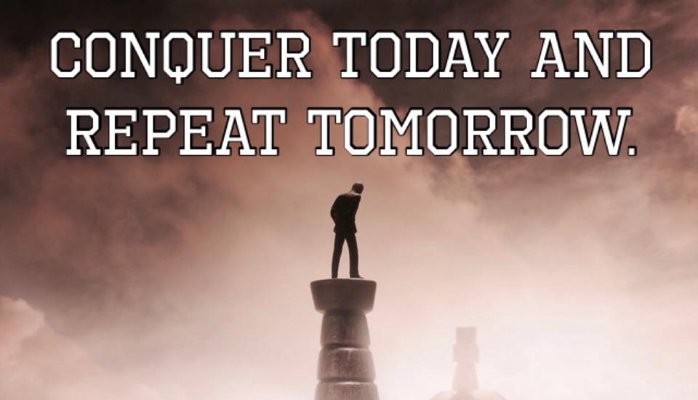
How Winning Isn't The Only Thing?
How many people equate success with conquest?
In other words, believe that we live in a dog-eat-dog world in which, while maybe not the only way, the best way to get ahead, is at bettering someone else.
I thought about this perspective recently, when I read an article discussing how the purchasing profession is trying to move away from the adversarial mindset that dominates how they negotiate with their suppliers.
References were made to the continuing proliferation and popularity of negotiating courses, which proclaim that one does not get what they deserve, but what they can negotiate.
The suggestion is obvious - when one negotiates there is a winner and a loser. To be a winner means that you must acquire the skills that enable you to get the better of someone else.
But is this really the way to win?
A Pyrrhic Victory
In a seminar, Kate Vitasek talked about her days as a senior buyer at Microsoft, where getting the better of a supplier had a direct impact on her personal compensation.
Kate made references to wielding the power of an industry giant, through which she could score financial victories over her suppliers. It was a conquest worthy of a Tim The Tool Man Taylor grunt on Home Improvement.
But such wins as Kate later suggests, can come back to haunt a company in the form of poor supplier relationships and a declining level of service enthusiasm. After all, it is difficult to joyously seek to deliver great service to a customer who is "sticking it to you."
Ultimately, and similar to dry rot in wood, this erosion from within eventually weakens a company's supply chain, and in the process the company itself. As a result everyone ends up a loser.
Is Winning Really The Only Thing?
I have encountered organizations where, in an almost warlike atmosphere, competitive strife - either intentional or unintentional - has been encouraged as a means of extracting the best from each employee.
The approach is simple in that the rewards of victory are clear and limited to those who perform. There is no room for second best in this "winning isn't everything, it's the only thing" world.
In today's hyper-competitive business climate, where having job security is now a distant memory, this latter point has an even greater influence than before. No one it turns out is safe. Whether you work in the company's mail room or occupy the lofty heights of the executive suite, what you accomplished yesterday is obfuscated by the overwhelming need to prove yourself again today. If you stumble, there is someone ready to pick up the slack and overtake you.
While creating an environment that is solely focused on achieving victory by any means as long as it is achieved, may produce short term results, it will ultimately undermine the morale of all employees.
Like the buyer - supplier relationship referenced by Kate, non-collaborative competition that seeks self gain at the expense of others will not only hurt an organization, but even the supposed winners themselves.
You simply have to check out the example of Randy in my book - a promising young executive from Bell - to realize this greater truth. His story is the epitome of the hollow victory.
The Answer Is No . . .
A Psychology Today article talked about not only the reality of hollow victories, but also the importance that winning is only valuable when it is accomplished in the right way.
In the article, Jonathan Wilson asserts that "An athlete who . . . intentionally injures an opponent in order to secure a victory has done something immoral, and if such an athlete wins it is a hollow victory." Wilson's position is clear . . . victory at all costs means nothing. Whether it is a buyer getting the better of a supplier, or creating an environment that promotes individual gain over team achievement and unity, we have to understand the consequences of victory.
The irony of course, is that near the end of his life Vince Lombardi - with whom the winning is the only thing quote is associated - lamented: "I wished I'd never said the thing...I meant the effort. I meant having a goal. I sure didn't mean for people to crush human values and morality."
So as it turns out it is not winning so much as how you win - and how you help others to win - that determines if you are truly victorious.
30

